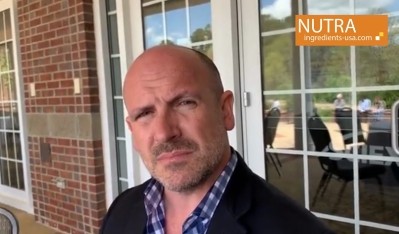Plethora of supplement forms confuses communication with patients, physician says

Dr Tieraona Low Dog, MD, spoke on the issue at the 19th annual Oxford International Conference on the Science of Botanicals at the University of Mississippi. The conference wraps up today, Thursday, April 11.
Background in herbalism
Dr Low Dog, who has consulted with a number of dietary supplement companies and is a renowned expert in the field, said she has a unique perspective on how these products can help consumers.
“Before I became a physician I was a midwife and president of the American Herbalists Guild,” she said.
“All midwives have a small cadre of herbs that they know and use. When I went to medical school I was fascinated that there was no discussion of the botanical origins of most drugs,” she said.
Dr Low Dog said she grows more than 50 medicinal plants in her garden and lectures on the local medicinal varieties that grow wild near her home in northern New Mexico. She said her approach has always been to look at the whole herb first, and to present those herbs in their traditional dosage forms when recommending them to patients.
Odd fit for botanicals
Putting botanicals into a dietary supplement positioning, as DSHEA did, created an odd fit, she said.
“We sought to regulate them as foods when traditionally they never would have been consumed as foods. They don’t taste good and some of them could be toxic,” she said.
But defining botanicals as a category of supplements opened them up to an approach of pharmaceutical-like reductionism. If the plant in a low concentration tea or tincture form was good, extracting and purifying the main bioactives (if you could identify those) would be even better, right?
Dr Low Dog said the resulting explosion of innovation has been difficult to keep up with, even for someone as knowledgeable as her.
Botanicals as a food?
“We sought to regulate [botanicals] as foods when traditionally they never would have been consumed as foods. They don’t taste good and some of them could be toxic,” Dr Tieraona Low Dog, MD.
“It says on supplement packages: ‘Consult your physician.’ People want to know what to take, and how much. Structure function claims are hard to interpret,” she said.
“Take turmeric for example. Now there are phospholipid forms, nano emulsions, and turmeric with piperine. How do I counsel my patients about which of these to take?” Dr Low Dog added.
Confusion breeds skepticism
While the conventional medical community is often criticized for being anti supplement as a rule, Dr Low Dog urged her audience to look at the issue from the point of view of the typical physician. There are so many products on the market in different forms (and in varying levels of product quality) making so many different claims. Add to that the issue that there is relatively little pharmacokinetic data for many of these.
Then place that into the typical 15 minute window a physician has to work with a patient. If there is little information on potential herb-drug interactions, which is true for many botanicals, it makes a physician more likely to tell their patients to just stay away from all supplements.
Opportunity for better communication
Dr Low Dog said that in other jurisdictions, such as Europe, the regulatory structure, which includes botanical medicines categories, means that more pertinent information can be shared with consumers, and companies have more incentive to do focused studies on their products.
“If there is some revisiting of DSHEA, there would have to be a better way to communicate about these products,” Dr Low Dog said.
“Take rhodiola. It is the No. 1 prescribed herbal psychostimulant prescribed in Sweden. In a relatively short amount of time people feel better on rhodiola. There are 70 mechanistic studies on this herb, and if we were more like Europe or Canada, we could talk about them,” she said.

















